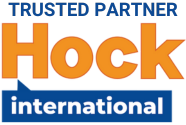Table of Contents
Introduction
The journey for US Certified Management Accountants (CMAs) through the digital landscape demands a keen awareness of technological trends—a prerequisite for achieving and sustaining career success. As technology continues to reshape industries, management accountants find themselves at a critical juncture. The ability to navigate the digital landscape is no longer an added skill but a fundamental requirement for professional growth. In the following sections, we’ll unravel the significance of staying technologically savvy in the field of management accounting.
Tech Trends Reshaping Management Accounting:
1. Cloud Computing Revolution:
- As per a survey conducted by the Institute of Management Accountants (IMA), a remarkable 78% of finance professionals foresee a substantial impact of cloud technology on their industry by 2025.
- Embracing this revolution, Certified Management Accountants (CMAs) are urged to adopt cloud-based accounting systems. This not only enhances collaboration but also ensures accessibility and robust data security in an increasingly interconnected digital environment.
2. Big Data Analytics:
- The Harvard Business Review reports a tangible 5-6% increase in productivity for organizations harnessing big data analytics.
- Armed with data analytics tools, CMAs can transcend traditional financial analysis. This enables them to provide more insightful forecasts, empowering strategic decision-making within organizations.
3. Blockchain Integration:
- Deloitte’s survey underscores the significance of blockchain, revealing that 53% of organizations consider it a critical priority.
- CMAs exploring blockchain technology play a pivotal role in enhancing transparency within financial transactions. Furthermore, the integration of blockchain can streamline audit processes, ensuring the accuracy and integrity of financial records.
4. Artificial Intelligence (AI) in Financial Forecasting:
- Gartner’s foresight predicts that by 2025, a substantial 75% of organizations will transition from piloting to operationalizing AI.
- For CMAs, incorporating AI tools into their skill set becomes a strategic move. This not only improves accuracy in financial forecasting but also enhances capabilities in risk management and overall decision-making processes.
The CMA Advantage in Tech-Driven Finance:
- High Demand for Tech-Savvy CMAs:
- A study by Robert Half reveals that 77% of finance leaders prioritize hiring professionals with technology skills.
- US CMAs with tech proficiency are in high demand, securing diverse career opportunities in the digital landscape.
- Tech-Enhanced Efficiency:
- McKinsey reports that automation and AI can potentially increase productivity by up to 40%.
- CMAs integrating automation tools can streamline routine tasks, allowing more focus on strategic financial management.
Challenges and Opportunities:
- Skills Gap in Tech Adoption:
- A LinkedIn survey indicates that 76% of finance professionals believe they lack the necessary digital skills.
- CMAs should proactively engage in continuous learning to bridge the digital skills gap.
- Upskilling for Future-Proof Careers:
- According to the World Economic Forum, 54% of employees will require significant upskilling by 2022.
- Continuous upskilling positions CMAs for future-proof careers in the evolving tech landscape.
Conclusion:
The digital age presents both challenges and opportunities for US CMA professionals. Embracing technology is not merely an option but a necessity for those aiming to thrive in the dynamic field of management accounting. By staying informed, upskilling, and integrating tech trends into their skill set, CMAs can not only navigate the digital age but lead the transformation, ensuring their roles remain indispensable in the ever-changing financial landscape.



